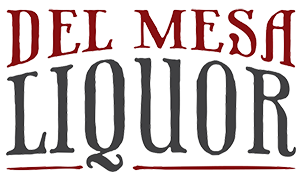Wine, with its alluring aromas and intricate flavors, has always been a symbol of celebration, culture, and sophistication. For centuries, it has transcended its role as a mere beverage, becoming a topic of conversation, an art form, and a collector's pride. But in recent times, another dimension has been added to its multifaceted charm - wine as an investment.
As the global market has evolved, many enthusiasts have begun to view certain bottles as potential goldmines. Walking through the aisles of a reputable alcohol store, one might encounter bottles with staggering price tags, not merely for consumption but as potential assets for future profit.
But is investing in these bottled treasures truly a pathway to prosperity? This blog aims to delve deep into the world of wine investment, shedding light on its potentials, pitfalls, and everything in between. Let's embark on this vinous voyage together.
The Allure Of Wine Investment
Historically, wine, especially from iconic regions like Bordeaux, has been seen as a symbol of luxury and class. But over the past few decades, it's also been viewed through the lens of investment.
The reasons? Rarity, age, and demand. Rare vintages from acclaimed vineyards can fetch astronomical prices. As wine ages and becomes rarer, its value can significantly appreciate. And with the global demand for fine wines soaring, especially in emerging markets like China, the potential for profit has become evident.
Begin With Knowledge
Just as you wouldn’t invest in stocks without understanding the market, diving into wine investment requires a foundation of knowledge. This includes understanding vintages, wine regions, grape varieties, and even the producers.

Image: Freepik
Some wines are more likely to appreciate in value than others. For instance, wines from the Bordeaux region, particularly those labeled as 'First Growth', have historically shown substantial appreciation.
However, it's also worth noting that wine trends can change. Today's sought-after bottle might not be in vogue a decade from now. Staying updated with the wine industry's shifts and trends is crucial.
Your Alcohol Store: An Unexpected Ally
When one thinks of wine investments, grand auction houses or exclusive wine brokers might spring to mind. However, the neighborhood alcohol store, often overlooked, can be an investor's hidden gem. Behind those glass doors, shelves brimming with bottles from around the world can offer a treasure trove of potential investments.
Established names like Château Lafite Rothschild, Dom Pérignon, or Penfolds Grange often grace the aisles alongside emerging stars in the wine world. The knowledgeable staff, from sommeliers to seasoned store managers, can offer insights into the next big trend or a vintage that's set to appreciate.
Moreover, they can provide access to exclusive releases, rare finds, or even special promotions. Establishing a rapport with your local store can also mean first dibs on limited stock or insider news on upcoming arrivals. In the realm of wine investment, sometimes the most valuable resources are closer than we think.

Image: Freepik
Risks In The Wine Market
No investment is without risks, and wine is no exception. Factors to consider include:
- Market Volatility: Like any other market, the wine market is subject to ups and downs.
- Storage: As mentioned, wine needs specific storage conditions. The cost of professional storage solutions can add up over time.
- Provenance: The wine's history, especially regarding its storage, can significantly impact its value.
- Authenticity: The wine industry isn't immune to fraud. Counterfeit bottles are a real concern, and ensuring a wine's authenticity is crucial.
Making The Sale
After holding onto a wine for several years, the next step is selling it for a profit. Here's where things can get tricky. While selling at auction can yield a high price, auction houses also take a significant commission.
Alternatively, selling directly to collectors or through specialized wine-selling platforms can offer better returns. And again, a trusted alcohol store might come into play. Some high-end stores purchase rare wines or work on consignment, selling the wine for you and taking a commission upon a successful sale.
To Invest Or Not?
Is wine investment a lucrative endeavor? The answer isn't straightforward. While there have been success stories of collectors making hefty profits, there are also tales of significant losses.
For those genuinely passionate about wines, this form of investment can be rewarding both in terms of profits and the sheer joy of owning a collection of fine wines. However, as with all investments, it's essential to do thorough research, understand the risks, and, if possible, consult with professionals in the wine investment field.

Image: Freepik
Final Thoughts:
Navigating the nuances of wine investment is akin to savoring a complex bottle – layered, intricate, and deeply rewarding when approached with patience and knowledge. While the world of wines offers a rich tapestry of tastes, as an investment, it merges passion with potential.
Yet, like any asset, it demands discernment, careful research, and a genuine appreciation for the craft. Whether you're a seasoned investor looking for diversification or a wine enthusiast keen on merging pleasure with profit, always remember to savor the journey.
Every visit to an alcohol store, every uncorked bottle, carries the essence of history, culture, and potential growth. So, as you raise a glass to the prospects of wine investment, let it be a toast to informed choices, rich experiences, and the timeless allure of wines. To the future, where passions pour profits!
 Log in
Log in
 My Wishlist
My Wishlist Reward Program
Reward Program Corporate Gifts
Corporate Gifts Customer Help
Customer Help


